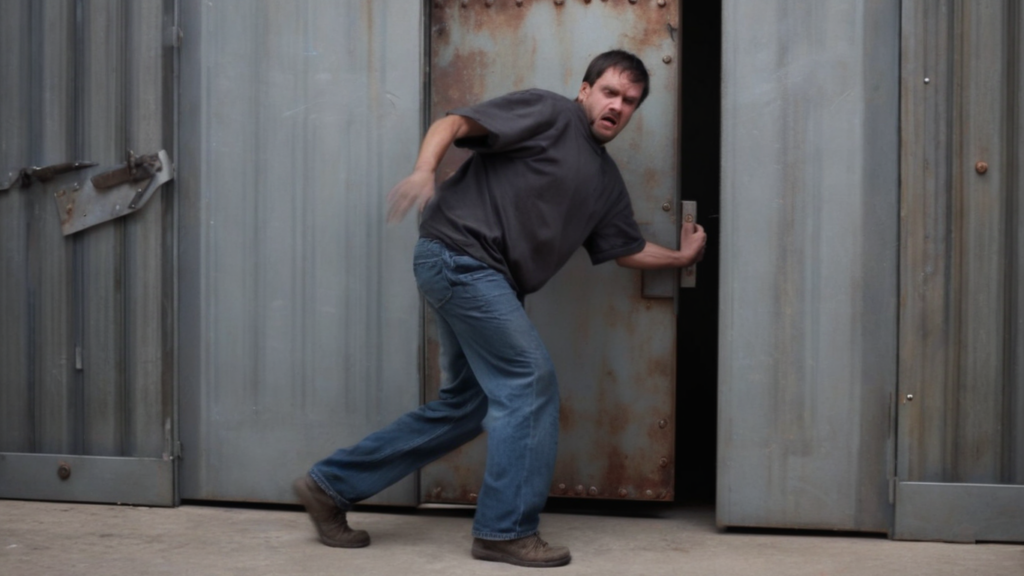How to Keep Your Cool When SHTF
When things hit the fan (SHTF), staying calm is one of the most critical factors for survival. Whether it’s a natural disaster, civil unrest, or any unpredictable scenario, your ability to remain composed can make all the difference. In moments of crisis, panic can lead to poor decision-making, but a cool head can see you through even the most challenging situations.
Here’s how to keep your cool when SHTF:

1. Take a Deep Breath
The first step to regaining control is to focus on your breathing. Deep breaths activate your parasympathetic nervous system, which helps calm the body. In through the nose, out through the mouth—repeat this a few times. This small action can instantly reduce anxiety and give you a clearer mind to assess your situation.
2. Assess the Situation
Before making any decisions, take a moment to evaluate your surroundings. What are the immediate threats? Do you have enough resources? Quickly but calmly identify the priority—whether it’s finding shelter, securing food and water, or protecting yourself from danger. Acting with purpose will prevent impulsive decisions.
3. Prioritize Needs
Use the rule of threes to guide your priorities: You can survive three minutes without air, three hours without shelter (in extreme conditions), three days without water, and three weeks without food. This rule will help you stay focused on the essential tasks, preventing you from getting overwhelmed.
4. Rely on Your Training
If you’ve prepared for emergencies in advance, now is the time to rely on that training. Whether it’s first aid, self-defense, or survival skills, trust what you’ve practiced. Muscle memory and instincts can often take over, helping you stay calm as you execute what you know.
5. Stay Informed but Cautious
If possible, stay connected to the outside world via a radio, phone, or other devices. Having access to information can help you make informed decisions. However, avoid getting overwhelmed by the constant influx of news, especially if it’s full of panic-inducing speculation.
6. Keep Your Mind Busy
During long periods of downtime, your mind can wander to worst-case scenarios. Combat this by staying active. Work on small tasks, whether it’s organizing supplies, tending to injuries, or planning your next move. This helps maintain focus and keeps anxiety at bay.
7. Manage Group Dynamics
If you’re with others, it’s essential to maintain a calm and composed presence. People will look to you for leadership, and staying cool under pressure will encourage others to do the same. Keep communication clear and decisive—panic can spread, but so can calm.
8. Control Your Emotions
In a crisis, emotions will naturally run high. It’s important to acknowledge them but not let them control your actions. Fear and anger can cloud judgment, leading to rash decisions. Stay grounded by focusing on the task at hand and putting emotions aside when necessary.
9. Be Prepared for the Unexpected
No matter how well-prepared you are, crises can evolve rapidly. Flexibility is key to keeping your cool. Be ready to adapt your plans and change course if necessary. Rigidity in a crisis can lead to frustration, while adaptability ensures you remain proactive rather than reactive.
10. Maintain Hope
It’s easy to get consumed by the worst possible outcomes, but maintaining a sense of hope is crucial for mental endurance. Remind yourself that the situation is temporary and that you have the skills and resources to get through it. A positive mindset can keep you from giving in to despair.
Conclusion
Staying calm when SHTF is about preparation—both mental and physical. Practice these strategies now, so when the time comes, you’ll be able to keep a cool head, make sound decisions, and guide yourself or others through the crisis. In a chaotic world, composure is often your most valuable asset.



